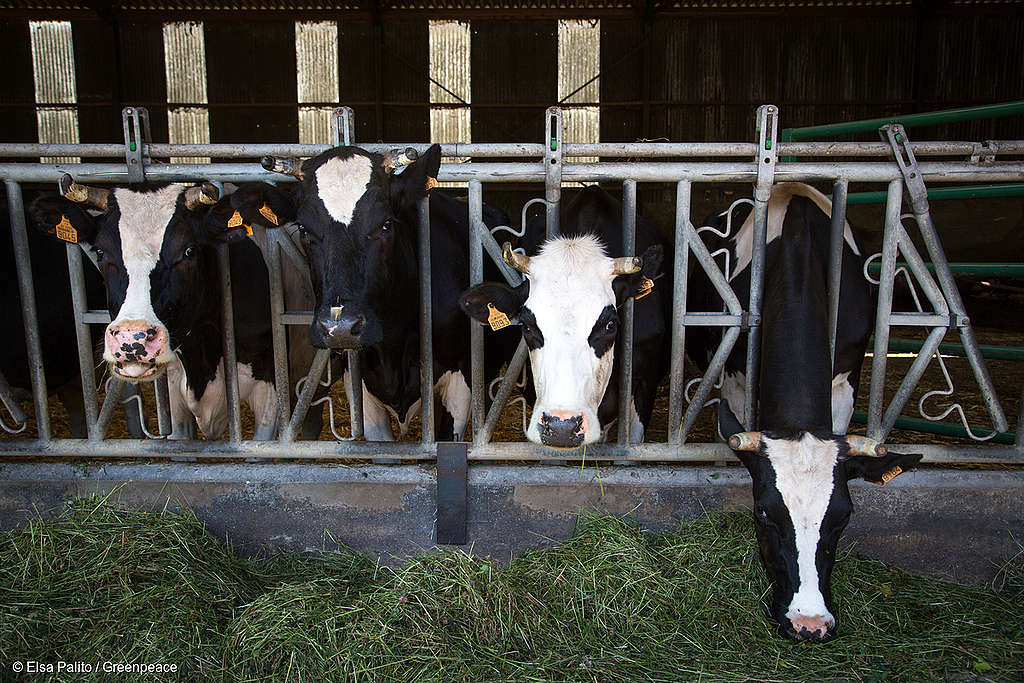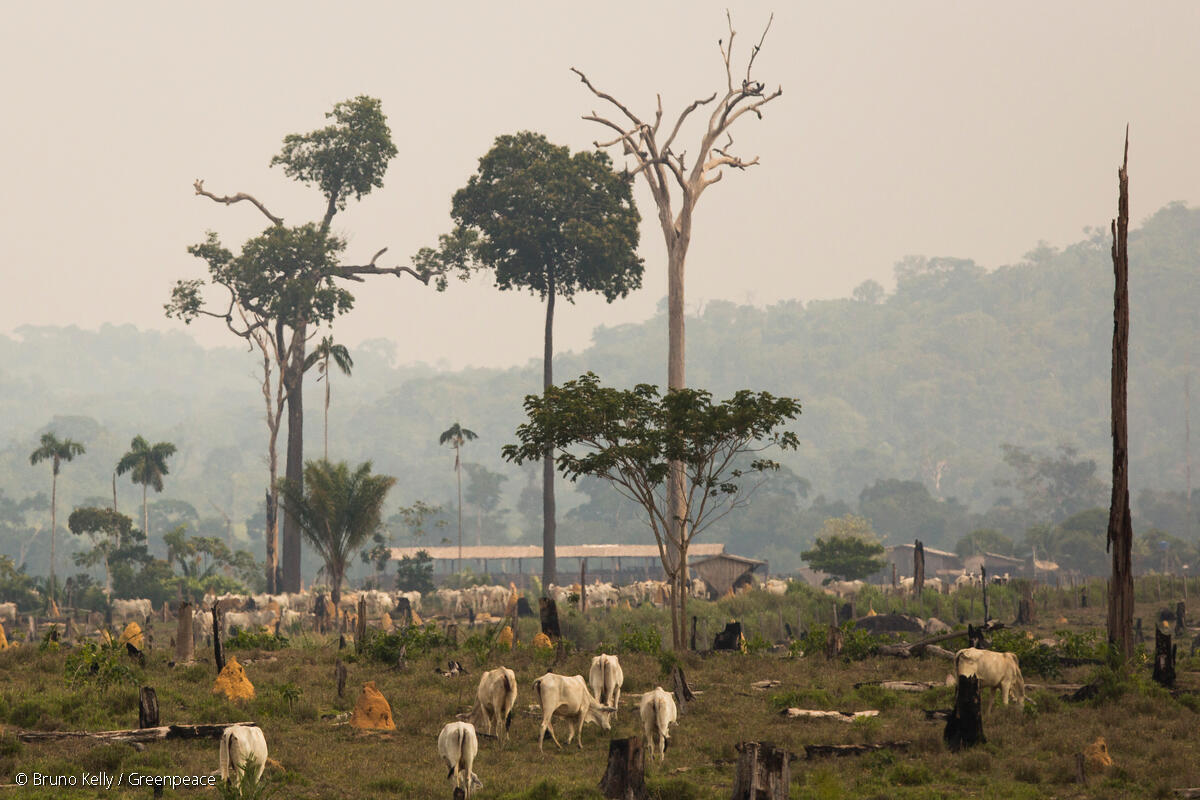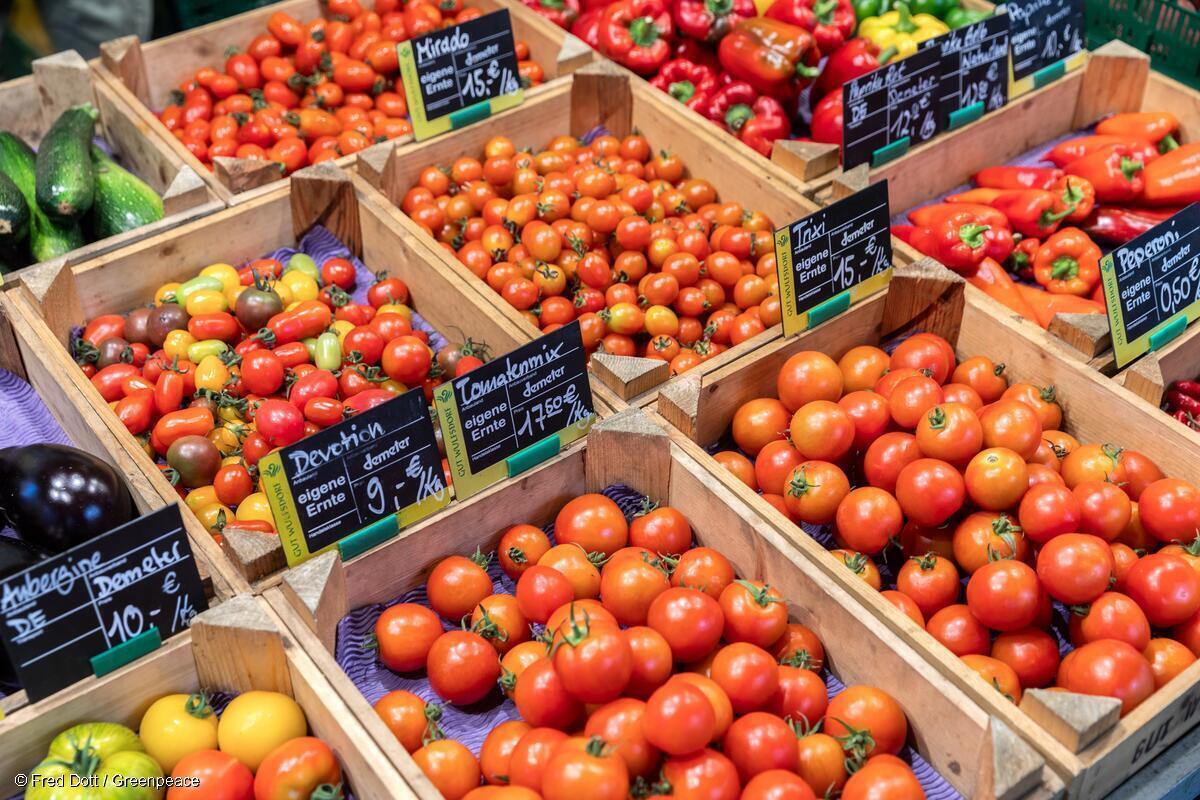Agriculture affects us all. It affects our food, our local environment, the global climate and our economy. What we eat and how it is produced determines our health and the health of our planet.
And our future is threatened by industrial agriculture, especially by intensive farming of animals for meat and dairy. Factory farming is not only cruel to animals, it is tearing down our forests, polluting our water, warming the planet and endangering our health. Globally, meat and dairy production releases as much greenhouse gases into the atmosphere as cars, trains, ships and airplanes combined. Intensive livestock production also contributes to antibiotic resistance. And our heavy meat diets are one of the causes of a growing epidemic of obesity, cardiovascular diseases, type 2 diabetes, and some cancers.
For half a century the European Union has invested public money to shape the way food is produced in Europe. But, so far it has failed to protect us and the environment from industrial farming. On the contrary, the EU actually subsidises the expansion of industrial meat and dairy production through its Common Agricultural Policy (CAP).
The next CAP starts in 2021, but the negotiations have already begun. Now we have the chance to fix Europe’s food system, to provide sustainable, nutritious and affordable food for everyone.

Greenpeace is calling on Europe’s decision-makers in Brussels and the Member States to ensure that the future CAP protects our health and the environment. This means:
1. No more CAP money to factory farms
CAP money is public money and it should not reward polluters. Factory farms are huge polluters. With large numbers of animals in cramped conditions they emit high amounts of dangerous methane, ammonia and nitrous oxide. CAP money should not support farms that:
- Have more than one and a half ”Livestock Units” per hectare of land (1 Livestock Unit being for instance 1 dairy cow, 2 sows or 37 piglets)
- Get less than 50 per cent of their feed from their farm and/or import animal feed (particularly feed linked to deforestation)
- Rely on the use of antibiotics as a preventative, treating entire herds when just one or a few animals get sick
2. Promote less and better meat and dairy production
CAP payments should support farms that fulfill one or more of these criteria:
- Put in place measures to transition towards fewer numbers of animals, thereby reducing emissions of pollutants such as methane and ammonia
- Raise animals in ecologically managed extensive systems
- Minimise – and where possible eliminate – antibiotic use, and abandon antibiotics which are also used to treat humans, to lower the risk of creating resistant bacteria
3. Increase support for ecological production of fruit and vegetables
Despite globally producing 14 percent of greenhouse gas emissions, the livestock sector receives substantial CAP support, both directly and via payments towards the cultivation of feed crops. Instead, the CAP should preferentially pay for:
- Ecological production of fruit, vegetables and legumes for direct human consumption
- The promotion of healthy diets, e.g. by strengthening the EU-wide school fruit and vegetables scheme and implementing campaigns on alternatives to meat
4. Tighten the environmental conditions that farmers must abide by to receive CAP subsidies
The European Commission announced it would strengthen the environmental conditions that farmers have to abide by before they qualify for CAP subsidies. However, effective ‘conditionality’ must cover compliance with all EU environmental protection laws, including laws protecting our water from pollution, limiting harmful emissions, managing the use of pesticides and protecting wildlife and their habitats. Only then can ‘enhanced conditionality’ be effective in reducing the environmental damage caused by farming.
5. Make it mandatory for countries to reach all health, climate and environmental CAP goals
The European Commission has proposed nine overarching goals that EU countries may pursue with their national CAP plans. Four of them concern health, climate and the environment. It should not be left up to governments to pick and choose from these nine goals. Countries must at least comply at least with the health, climate and environment goals.
6. Strengthen current environmental measures in the future CAP
The European Commission wants to increase environmental protection in the CAP. Yet, its new budget proposal cuts by a quarter the money available for ‘rural development’ – which historically delivered the best health and environmental action. The amount of money dedicated to rural development, and in particular to ecological farming, organic farming and ‘high nature value farming’, must be substantially increased.
7. Dedicate at least 50 per cent of CAP subsidies to health, climate and environmental protection
Currently, CAP direct payments go to farmers regardless of whether they help or harm human health or the environment. These payments have a very poor environmental and health performance record. The new CAP should require that at least 50 per cent of these direct payments must be spent on health and environmental protection.
8. Support small-scale sustainable farmers rather than the expansion of industrial agriculture
Public money should promote diversity in the fields and on the plate. Yet, between 2005 and 2013, a quarter of Europe’s farms (3.5 million businesses) were forced to close. The remaining farms have continuously expanded, thanks also to CAP funding benefiting intensive agriculture. Instead, the new CAP must support small farms engaged in or transitioning towards ecological farming by:
- Setting a cap on the level of subsidies a single beneficiary can get, to effectively limit the amount received by larger and industrial farms
- Adopting a ‘degressive’ payment scheme, providing more money for the first hectares and the first animals a farm owns
Farming must protect public health and the environment. It must provide nutritious food while improving farmers’ livelihoods, and it must ensure a high standard of animal welfare. It is important that decision-makers focused on our health and the environment have an equal say in the decisions on CAP reform. Why? Because the CAP has impacts way beyond agriculture alone. It shapes the way we eat and impacts our health and the health of our planet. It is time for the CAP to change.



